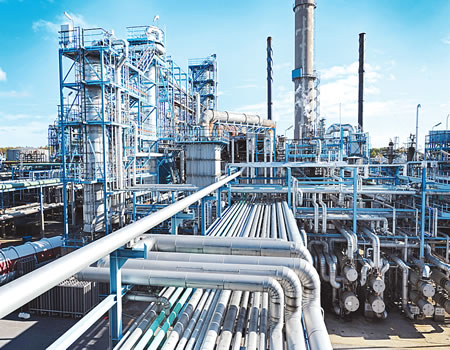Following reports in May that Nigeria will cut the level of sulphur allowed in fuels imported into the country starting from this year, Nigerian National Petroleum Corporation, NNPC, has shortlisted about 40 companies for the direct sale, direct purchase, DSDP contract.
According to a report by Reuters in May, even though the country plans to cut down its intake of sulphuric fuels, the cap is still 10 times above what health campaigners urged countries to take.
The NNPC has asked for diesel and gasoline at a maximum of 500 ppm sulphur, Reuters had reported, quoting trade sources.
The Corporation said 2018 that its target was to cut the allowed sulphur to 50 ppm for diesel and 150 ppm for gasoline by the end of 2019, from 3,000 ppm and 1,500 ppm, respectively.
The selected 40 companies, it was gathered, have already submitted their pricing to supply the fuels, and the contracts are expected to begin in late August or September.
It was also gathered that the NNPC is expected to still undertake a cut of the list to about 20 firms, giving preference to more local firms than foreign companies.
Theporcitynews gathered that the move to give the contract to more indigenous firms is to lift its years of restriction on other private depot owners from importing fuels into the country.
The United Nations Environment Programme and health campaigners now want West African nations to ban fuels above 50 ppm due to evidence of significant health problems associated with the emissions. The health impacts are particularly acute in dense urban areas such as Lagos.
Experts said Nigeria’s new limits would change little, as few global refineries produce gasoline or diesel above 500 ppm.
Lack of maintained refineries had forced Nigeria to rely heavily on imported fuels, making NNPC the sole importer.
Nigeria’s petroleum products imports value overrides exports
Newly released statistics by the Organization of the Petroleum Exporting Countries, OPEC, has shown that Nigeria’s value of petroleum products imports was more than its exports in 2018.
The report, Annual Statistics Bulletin, ASB 2019, stated that the value of exports of petroleum products by the country in 2018 amounted to $54,513 million.
While exports grew by $16, 530 million in 2018 from $37,983 million in 2017, no gain was made as the value of imports already override their exports, Sweetcrude reports.
According to ASB 2019, Nigeria’s value of petroleum products import in 2018 was $54, 645 million.
The country does not refine its crude oil, rather spends huge money on importation of petroleum products for its over 200 million inhabitants. The country’s population grew 5.3 million within the space of one year alone, 2017-2018, according to OPEC’s ASB 2019.
Nigeria spent N2.582 trillion on fuel importation in nine months, from January to September 2018, rising by 12.9 per cent from N2.289 trillion recorded in the first three quarters of 2017.
According to data obtained from the National Bureau of Statistics, NBS, Foreign Trade Statistics for the Third Quarter of 2018, Nigeria’s fuel import stood at N845.12 billion, N720.4 billion for the first and second quarters of 2018 respectively.
The country’s value of imports last year which amounted to $54, 645 million, was higher than its value of export of $54,513 million the same year.
The country’s value of import in 2014 was $70,778 million, dropped to $52,525 million in 2015, further dropped to $46,552 million in 2016, $49,508 million in 2017, and shooting upwards to $56,645 million last year.




